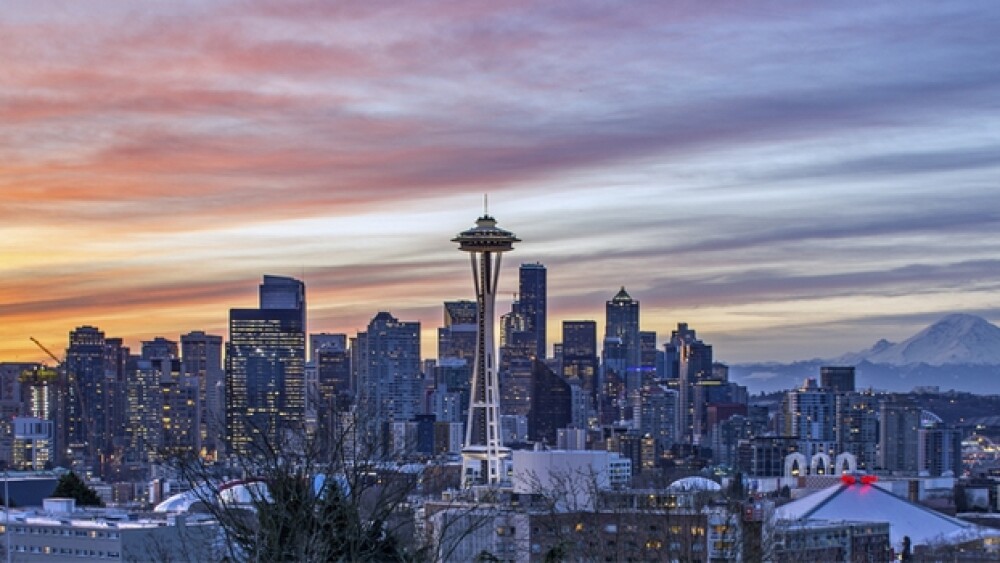Seattle is the fastest-growing life sciences market, according to a recent report by the U.S. Bureau of Labor Statistics and CBRE Research.
In March 2019, BioSpace wrote about how the BioForest Hotbed area was the fastest-growing life sciences market in the top 10 from 2014 to 2017. Although relatively small compared to the top areas such as California and Massachusetts, Washington state and Seattle are growing at faster than 17%. One of the life sciences’ heavy hitters in real estate development, Alexandria Real Estate Equities, is showing its increasing interest in the region.
In August, Adaptive Biotechnologies Corporation, based in Seattle, signed a 12-year, full-building, 100,000-square foot lease with Alexandria. The new facility will triple Adaptive’s footprint in Seattle. The new headquarters will be at 1165 Eastlake Avenue East in the city’s Lake Union life science cluster. Alexandria is paying $138.5 million for the 2.86-acre site. It is also investing $5 million to help Seattle’s homelessness.
“We have worked with Alexandria to design a state-of-the-art headquarters that will allow us to expand our lab capacity, R&D footprint and office space to help realize our goal to translate the genetics of the adaptive immune system into clinical products that we believe will transform medicine and improve patients’ lives,” stated Chad Robins, Adaptive’s chief executive officer and co-founder.
Adaptive expects the shell of the new buildings to be done in 2020 and to move into it in 2021. It is very close to its current headquarters at 1551 Eastlake Avenue East, which is also a part of Alexandria’s The Eastlake Life Science Campus.
Seattle is the fastest-growing life sciences market, according to a recent report by the U.S. Bureau of Labor Statistics and CBRE Research. Part of the growth is related to the supporting academic institutions in the area, including the Fred Hutchinson Cancer Research Center, Seattle Children’s Hospital and the University of Washington Medicine.
There are 61 life sciences companies in Bothell alone, a suburb of Seattle, with another 106 in Woodinville, Kirkland and Redmond.
Around the same time, Alexandria won a bidding process to acquire what is dubbed the Mercer Mega Block in Seattle, close to Amazon headquarters, the new Google Cloud campus and The Bill & Melinda Gates Foundation. Alexandria won the bid over five other bidders with a plan for a life sciences campus, community center and affordable housing tower.
In an interview with GeekWire, Ben Noble, the city’s budget director, said, “Our basic goal was to maximize the number of affordable housing units we could produce as a result of the transaction. Between what they’re providing on site and the cash resources they’re paying us, it’s a slam dunk that Alexandria was the best offer.”
Other bidders were Vulcan, the real estate arm of the late Paul Allen, BioMed Realty, a life sciences development firm, and more traditional real estate developers Kilroy Realty Corp., Touchstone and Tishman Speyer.
Vulcan is perhaps best known for developing Amazon’s original campus before selling the buildings to the company in 2012 for $1.16 billion. Vulcan since added more buildings for Amazon and is wrapping up the construction of the Google Cloud campus. Vulcan’s bid for the Mercer Mega Block was the lowest bid, $50 million, although it also proposed transferring 1.2 acres of land it holds in South Lake Union to affordable housing developers Plymouth Housing and Bellwether Housing. It apparently was the overall low bid that blocked their offer, although the city liked the improved offer of affordable housing options.
BioMed Realty is also building the Dexter Yard project close to the Mega Block. It offered between $55 million and $65 million for the land and a plan to build 718,000 square feet of office space and 175 affordable units, or 911,000 square feet of office space without affordable housing. It also included an “Activity Pavilion” for concerts, a pool, daycare or other events, as well as outdoor spaces.
Alexandria came to Seattle in 1996 when it acquired the original Fred Hutchinson Cancer Research Center campus on Seattle’s First Hill, fixed it up and leased it back to Fred Hutch.
In the Mercer Mega Block proposal, Alexandria expects to build 740,000 square feet of office and lab space. It pledged an affordable housing tower on one of the sites with a least 175 units. A portion of the campus will be dedicated to a city-run 30,000 square-foot community center. It also proposed 5,000 square feet for a “learning lab and skills center,” and a farm-to-table restaurant with an on-site farm. The bid’s estimated public benefits range from $275 million to $305 million.
When the city asked the bidding groups to improve their offers, Alexandra increased its price by about 40%.
“We feel it’s really the heart of the heart, and this is the last large block of land left to develop,” Joel Marcus, Alexandria’s co-founder and executive chairman, told GeekWire.
Alexandria has almost 1.5 million rental square feet (RSF) of office and laboratory space in the Seattle market, which are home to well-known biopharma companies such as Adaptive Biotechnologies, bluebird bio, and Juno Therapeutics, a Celgene company. Others include Dendreon Pharmaceuticals, Kineta and Sana Biotechnology.
“Our plan for the Mercer Mega Block campus equally focuses on fostering innovation to advance human health and improve the quality of people’s lives and addressing some of the Seattle community’s most critical issues by bringing an outstanding mix of public benefits and retail amenities to the Lake Union area,” said John Cox, senior vice president and regional market director of Alexandria. “The distinctive, highly amenitized and sustainable campus provides a tremendous opportunity for us to build upon Seattle’s legacy of scientific innovation and to create a new destination that will reinvigorate the neighborhood and promote economic diversity while it also deepens Alexandria’s development pipeline.”
The city of Seattle has suggested plans for the proceeds will be used to address homelessness and the lack of affordable housing in the city. It expects to invest $78.2 million in housing and $25.9 million on transit improvements. It had previously borrowed funds against the sale proceeds to pay for construction along the Mercer corridor, so $29.1 million of the deal will be used to repay the loan.
On the other side of the country, on July 31, 2019, Alexandria announced plans for another life sciences development in Boston. The firm has 250 properties, about 25% of which are in the Boston area, with the rest in San Francisco, New York and San Diego.
Alexandria indicates that it could develop a site of up to 650,000 square feet at 5, 10 and 15 Necco Street in Boston’s Fort Point neighborhood. At the company’s second-quarter earnings call, Peter Moglia, co-chief executive officer and co-chief investment officer of Alexandria, discussed the plans for a laboratory facility to be built next to the future site of General Electric’s future world headquarters.
The site “represents a strategic opportunity to expand Alexandria’s unparalleled, world-class” life science development in the Boston area, Moglia stated.
In May, Alexandria and National Development, based in Newton, Massachusetts, bought a 2.7-acre plot of land fronting the Fort Point Channel. The price was $252 million. A renovated 95,000-square-foot warehouse sits on the property that GE has leased for 12 years. Zoning allows for a 12-story commercial building.





